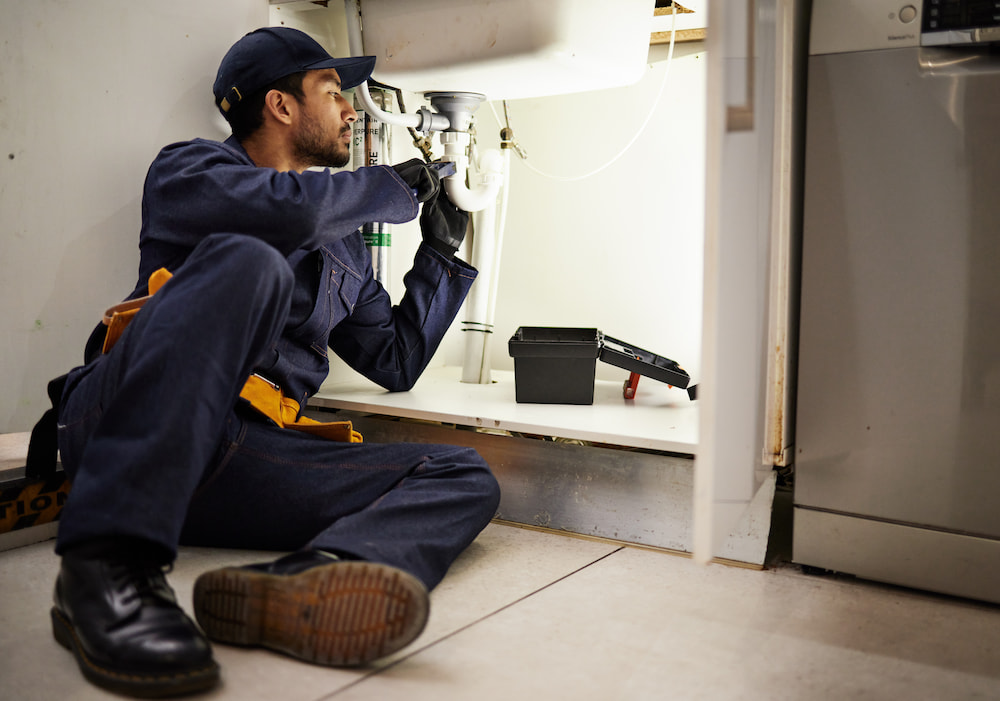A plumbing service can fix your pipes and fixtures. They can repair a water heater, fix a leak, and keep your sinks and toilets in working order. While plumbing tasks may seem universal, the difference between commercial plumbing vs. residential plumbing is more important than you might realize. Commercial and residential buildings are very different, not just in design but also in how they are used. A commercial plumber specializes in larger plumbing systems, multi-story water pressure requirements, and high usage rates associated with commercial properties to ensure businesses continue running smoothly when plumbing work is needed.
What is the difference between residential and commercial plumbing? DC Family Plumbing provides both residential and commercial plumbing services, so we are glad to explain.
Understanding the Basics
What is commercial plumbing, and how does it differ from residential plumbing?
In a household, the plumbing system must support the activities of a single family. That usually means supporting between 1 and 10 people using the system daily, 1-2 stories, and plenty of time to schedule repairs. A commercial building has very different requirements. They tend to be larger, taller, and with far more complex plumbing systems. A commercial building can also support hundreds, even thousands, of daily users, and a single bathroom may provide for the needs of an entire floor of professionals each day.
This means commercial plumbing is inherently larger in scale, more complex, and more robust. Repairs must also accommodate the needs and schedules of everyone who relies on the affected fixture.
Key Differences
Let’s drill down into the key differences between industrial plumber jobs and residential plumbing.
- Scale and Complexity:
- Commercial plumbing is often on a much larger scale.
- Plumbing systems are more complex and may involve industrial equipment in addition to bathrooms and water heaters
- Commercial buildings can be 10+ stories high, while homes are typically 1-2 stories
- Water Usage:
- The water flow and pressure needed for a commercial building is much higher
- Commercial buildings provide for hundreds of people daily and may have industrial water appliances
- Residential plumbing systems support 1-4 plumbed rooms and a single family.
- Plumbing Fixtures:
- A residence has 2-6 sinks, 1-4 toilets, 1-4 tubs and showers, and a few appliances like dishwashers and washing machines.
- A commercial property may have dozens to hundreds of sinks, toilets, and large-scale industrial appliances.
- Pipe Size and Materials:
- Commercial plumbing requires larger pipes, stronger water pressure, and far more durable materials for heavy use
- Commercial plumbing may have additional regulatory requirements for pipe and fixture installations
Challenges and Solutions
While there are many similarities between residential and commercial plumbing, the challenges are often unique
- Common plumbing issues:
- Residential: Old and unmaintained fixtures, emergency leaks, sudden changes in usage when a new family moves in
- Commercial: Breakdown in a high-traffic bathroom, off-hours scheduling, strict regulations
- Preventive maintenance:
- Preventative maintenance is crucial for both residential and commercial plumbing.
- Residences often go too long without preventative maintenance, leading to major plumbing emergencies and decaying appliances.
- Commercial properties often schedule frequent and intensive preventative maintenance.
- Emergency services:
- In a plumbing emergency, call for 24/7 emergency plumbing services. Residential or commercial, quick repairs are essential to prevent further damage and get your plumbing back in working order.
When to Call a Professional
When should you call for plumbing services from a residential or commercial plumber? The signs of a critical plumbing problem are the same whether your property is a residence or a commercial building.
- leaks and mysterious puddles
- Soaked walls, ceilings, etc.
- Fixtures that don’t work correctly
- Drains that won’t clear after basic drain care
- No hot water or unreliable hot water
- Water pressure problems
- Water that is cloudy or has an odd smell, color, or taste
It is vital to hire a licensed plumber trained in your building’s plumbing systems and whose installations align with building codes and regulations. DC Family Plumbing can provide highly professional and licensed commercial and residential plumbing services. Contact us for plumbing repairs, routine inspections, preventative maintenance, or emergencies. We are here to help.
Featured Image: PeopleImages.com – Yuri A/Shutterstock

